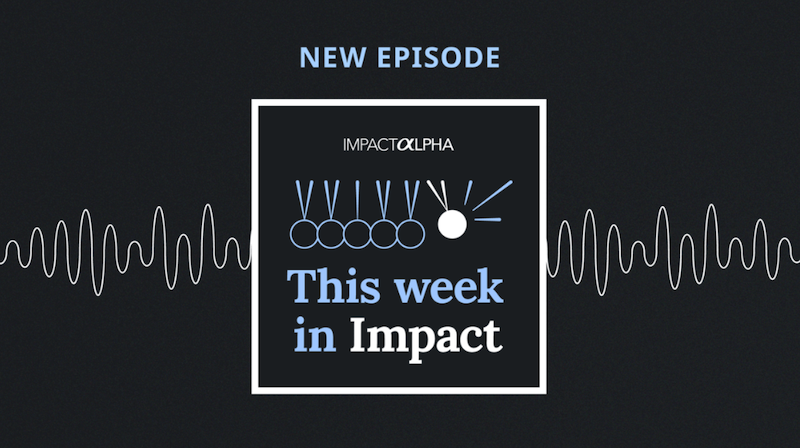The Global Ethical Finance Forum in Scotland earlier this month was animated by mutual enlightenment and the spirit of Edinburgh’s native son, Adam Smith, whose The Theory of Moral Sentiments provided some of the philosophical and psychological underpinning of the often misinterpreted The Wealth of Nations.
If Smith’s writing is often misinterpreted, so too is Islamic culture. Under the theme ‘convergence and collaboration,’ the conference explored ways in which Islamic finance and movements toward Socially Responsible Investment (SRI), Environmental, Social and Governance (ESG) reporting, and impact investment can join forces for societal benefit.
Convergence and Collaboration
It’s interesting enough to learn what the various approaches can learn from and contribute to each other. But first consider the potential scale. According to the Responsible Finance 2015 report by Thomson Reuters, the global population of 1.65 billion Muslims, many living in emerging markets, could present an opportunity for ‘prudent’ investing totaling $244 billion by 2019. ‘Prudent’ investing combines traditional Islamic screens (pork, pornography, alcohol, arms, tobacco) and Shariah values with ESG approaches.
Most tantalising of all is the prospect that a mutual approach to investment might be a way to foster cross-cultural cohesion, build trust, mend bridges and – perhaps – heal wounds.
In her keynote speech, Dr. Zeti Akhtar Aziz, governor of Bank Negara Malaysia and a leader in Islamic finance, emphasized that finance must add value in a real economic sense, and value based in society. She urged investors to move from short-term gains to long-term value.
Shared values include a concern for human rights and the environment and a focus on long-term sustainability. Consider the explicit restrictions on leverage and debt in Islamic finance. High debt to equity ratios were one of the major contributions to the financial crash in 2008. The Responsible Finance report suggests that Shariah -nspired leverage limitations could benefit conventional stocks. Further, the report points out that by avoiding firms with the biggest debt to equity ratio, investors would support tangible assets, and therefore have ‘real’ economic impact.
Real Assets
With a different approach to risk to conventional investment, Islamic financial institutions may be better prepared to perform well in a crisis. Few Islamic banks required bailouts after the financial crash, said Tirad Al Mahmoud, CEO of Abu Dhabi Islamic Bank. He cited Shariah laws that require prudence when leveraging, limiting bank overexposure and keeping damage manageable.
Shariah laws also require risk to be shared by creditor and debtor, and for lending to be backed by real, not intangible assets. That lays a foundation for new kinds of financial products, such as a socially-responsible sukuk. Sometimes called Shariah-compliant bonds, sukuks grant the holder a share in a tangible asset, unlike a conventional bond that the holder a share in a debt..
In June, the first SRI Sukuk was issued in Malaysia to fund the roll-out of 20 Trust Schools through the nonprofit Yayasan AMIR trust, The Malaysian Trust School program aims to expand access to quality education in Malaysian government schools through a public-private partnership with the Ministry of Education. Sukuk holders can convert their investment into a donation at any point during the tenure.
Governance and Ethics
To be sure, hurdles remain. There are differences between Shariah ‘compliant’ or ‘inspired’ investment approaches. A shortage of Shariah scholars (the gatekeepers who approve Islamic investment products) can create investment bottlenecks. And concerns have been raised about the corporate governance of Shariah boards in the Islamic financial services industry. Western responsible investors may balk at the ethics of Shariah-compliant investments that don’t take human rights into considerations.
Nonetheless, the sense of possibility was palpable as participants made their way to the Great Hall in Edinburgh Castle for farewell drinks. “The forum is only the beginning of a critical conversation,” Dr. Sayd Farook, vice chairman of Middle East Global Advisors, told the gathering, “to take responsible finance into the mainstream, and trigger a paradigm shift within the finance industry.”











